QOTD: What's the Best Utility Vehicle of the Past 10 Years?

Last week we took entries for the worst utility vehicle of the past decade. There were certainly plenty of submissions; it’s always easy to dream up crossover criticism (less dream, more nightmare in the case of the Acura ZDX).
This time around, we flip the question: What’s the best utility vehicle of the past 10 years?
As before, we’re limiting this question to vehicles sold between model years 2008 and 2017. Selected vehicles must have been available in the North American market for consideration.
While sales figures are an indication a particular vehicle is popular, they cannot be used to conclude a utility vehicle is good. A utility vehicle gobbling up market share could simply be a result of factory incentives, suspicious inventory trickery, or fleet sales. Overall, just don’t use sales as primary argument for a best of the breed selection.
So what does make for a “best” utility vehicle, as we seek today? A few qualifiers to ponder:
- Substantive cargo area
- Reliability
- Affordability to many
- Fuel economy
- Flexible seating
- All-wheel drive
- Practical size
At risk of being labeled a fanboy, a term thrown around these pages frequently and with indelicate fervor, I’ve made a single selection as example. And it’s not the Range Rover up there — don’t be ridiculous.
For 20 years and five generations now, the Honda CR-V has propelled North America away from Home Depot and around the occasional wet or leaf-covered road in relative space, comfort, and economy. The interiors hold up, engines and components are reliable, and resale value is decent or good even for high-mileage examples. It’s not luxuriously expensive from new.
In upper trims with metallic paint, it can look suitably upscale. Powered via all-wheel drive and CVT, the CR-V is rated 25 miles per gallon in the city and 31 on the highway. It’s more useful than subcompact CUV entries, as it’s not too small. It doesn’t have the third-row seat of larger family haulers that compromises passenger and cargo space 97 percent of the time, when the rearmost row is not in use.
It’s relatively a lot of things, to kind of a lot of people. I’m probably wrong though, so tell us your pick for best utility vehicle.
[Images: The Truth About Cars; Jaguar Land Rover; Honda]

Interested in lots of cars and their various historical contexts. Started writing articles for TTAC in late 2016, when my first posts were QOTDs. From there I started a few new series like Rare Rides, Buy/Drive/Burn, Abandoned History, and most recently Rare Rides Icons. Operating from a home base in Cincinnati, Ohio, a relative auto journalist dead zone. Many of my articles are prompted by something I'll see on social media that sparks my interest and causes me to research. Finding articles and information from the early days of the internet and beyond that covers the little details lost to time: trim packages, color and wheel choices, interior fabrics. Beyond those, I'm fascinated by automotive industry experiments, both failures and successes. Lately I've taken an interest in AI, and generating "what if" type images for car models long dead. Reincarnating a modern Toyota Paseo, Lincoln Mark IX, or Isuzu Trooper through a text prompt is fun. Fun to post them on Twitter too, and watch people overreact. To that end, the social media I use most is Twitter, @CoreyLewis86. I also contribute pieces for Forbes Wheels and Forbes Home.
More by Corey Lewis
Latest Car Reviews
Read moreLatest Product Reviews
Read moreRecent Comments
- Plaincraig 1975 Mercury Cougar with the 460 four barrel. My dad bought it new and removed all the pollution control stuff and did a lot of upgrades to the engine (450hp). I got to use it from 1986 to 1991 when I got my Eclipse GSX. The payments and insurance for a 3000GT were going to be too much. No tickets no accidents so far in my many years and miles.My sister learned on a 76 LTD with the 350 two barrel then a Ford Escort but she has tickets (speeding but she has contacts so they get dismissed or fine and no points) and accidents (none her fault)
- Namesakeone If I were the parent of a teenage daughter, I would want her in an H1 Hummer. It would be big enough to protect her in a crash, too big for her to afford the fuel (and thus keep her home), big enough to intimidate her in a parallel-parking situation (and thus keep her home), and the transmission tunnel would prevent backseat sex.If I were the parent of a teenage son, I would want him to have, for his first wheeled transportation...a ride-on lawnmower. For obvious reasons.
- ToolGuy If I were a teen under the tutelage of one of the B&B, I think it would make perfect sense to jump straight into one of those "forever cars"... see then I could drive it forever and not have to worry about ever replacing it. This plan seems flawless, doesn't it?
- Rover Sig A short cab pickup truck, F150 or C/K-1500 or Ram, preferably a 6 cyl. These have no room for more than one or two passengers (USAA stats show biggest factor in teenage accidents is a vehicle full of kids) and no back seat (common sense tells you what back seats are used for). In a full-size pickup truck, the inevitable teenage accident is more survivable. Second choice would be an old full-size car, but these have all but disappeared from the used car lots. The "cute small car" is a death trap.
- W Conrad Sure every technology has some environmental impact, but those stuck in fossil fuel land are just not seeing the future of EV's makes sense. Rather than making EV's even better, these automakers are sticking with what they know. It will mean their end.



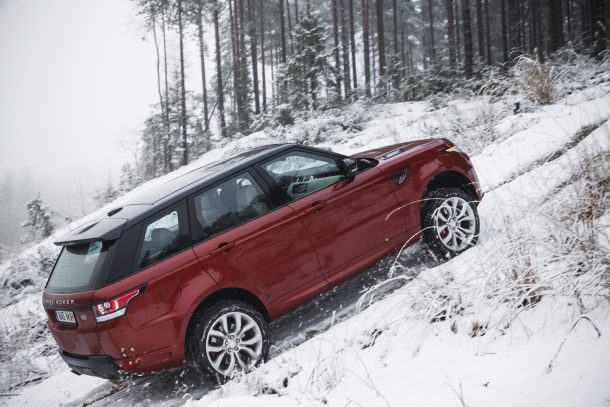
















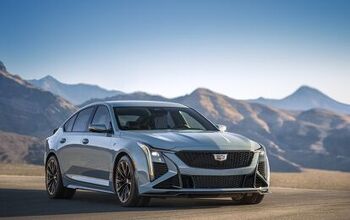
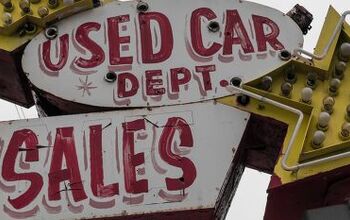
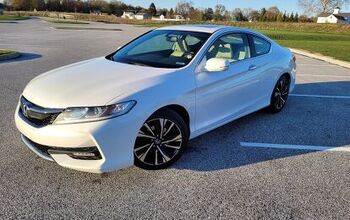
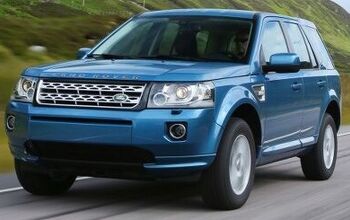





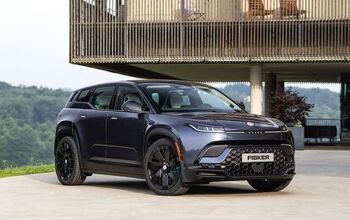





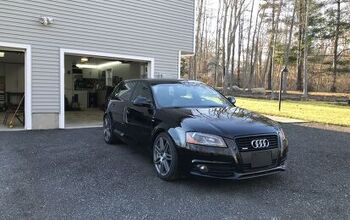


Comments
Join the conversation
I'd have to agree with the Grand Cherokee, despite FCA reliability concerns.
Can't buy Union made cars, the Honda is a soulless grocery getter. If you want something with room and comfort get a E63 estate. Amazingly fast, handles well enough horsepower/tq to pull start a planet and a great interior that makes driving a joy. Range Rover have problems but mostly when people who can't afford them or are who too busy neglect the maintenance. I had a 2004 Land Rover discovery that I whipped all the time but took care of the maintenance. It was still very nice when I sold it at 175K miles. If you put that next to all but the very pampered US made SUVs you'd see the difference between a vehicle that makes it to 175K miles still going strong and looking good and a worn wagon. I hate the idea that US cars have to cut costs to afford a union shop and we end up getting the guilt trip with by made in the US is ugly. Too many good people wanting to do the right thing aren't getting that buying union made is contradictory- go look at who UAW gives their donations to socialist minded Dems who are at the very same time working to increase corporate taxes, stomp on industry with useless regulatory fees and fines. Unfortunately, UAW has politicized car buying by having lopsided donations and providing manpower for socialist candidates. anti American values isn't even the beginning. And unfortunately the average worker is caught in the middle.